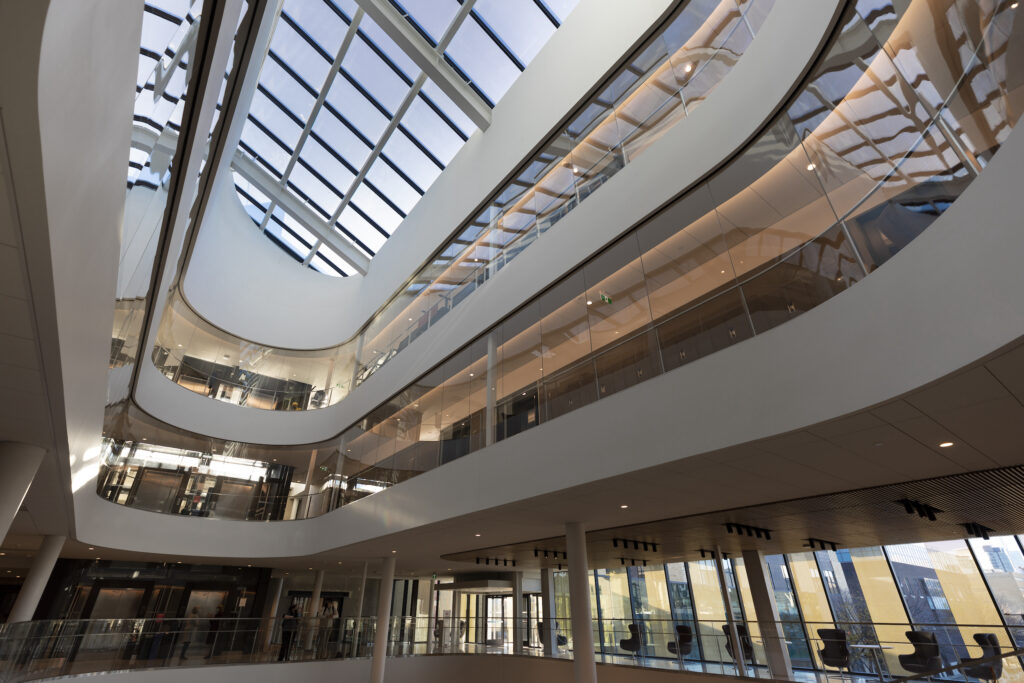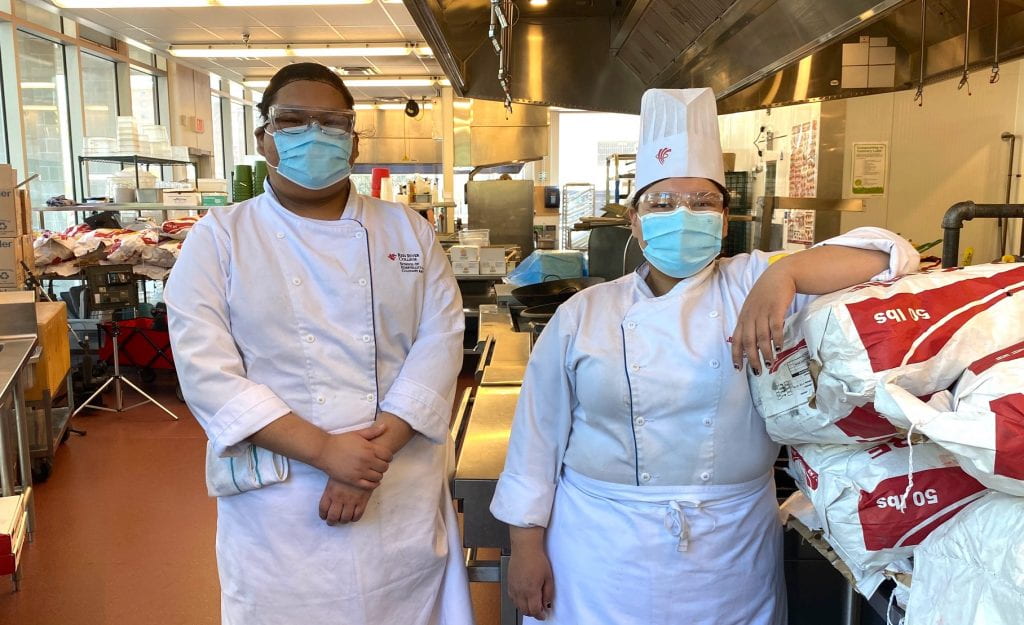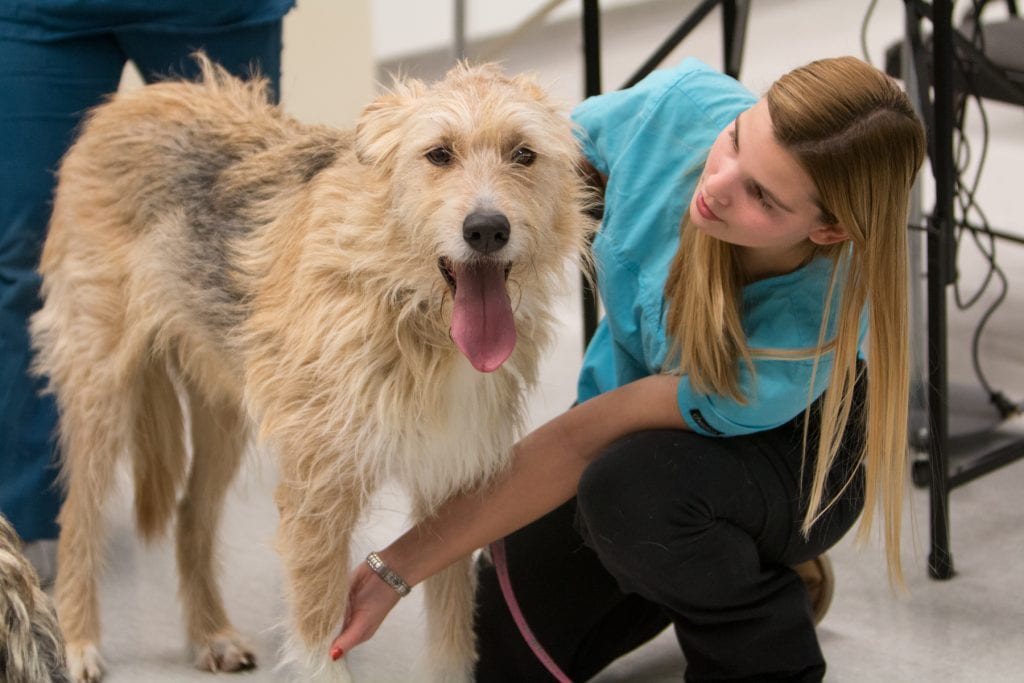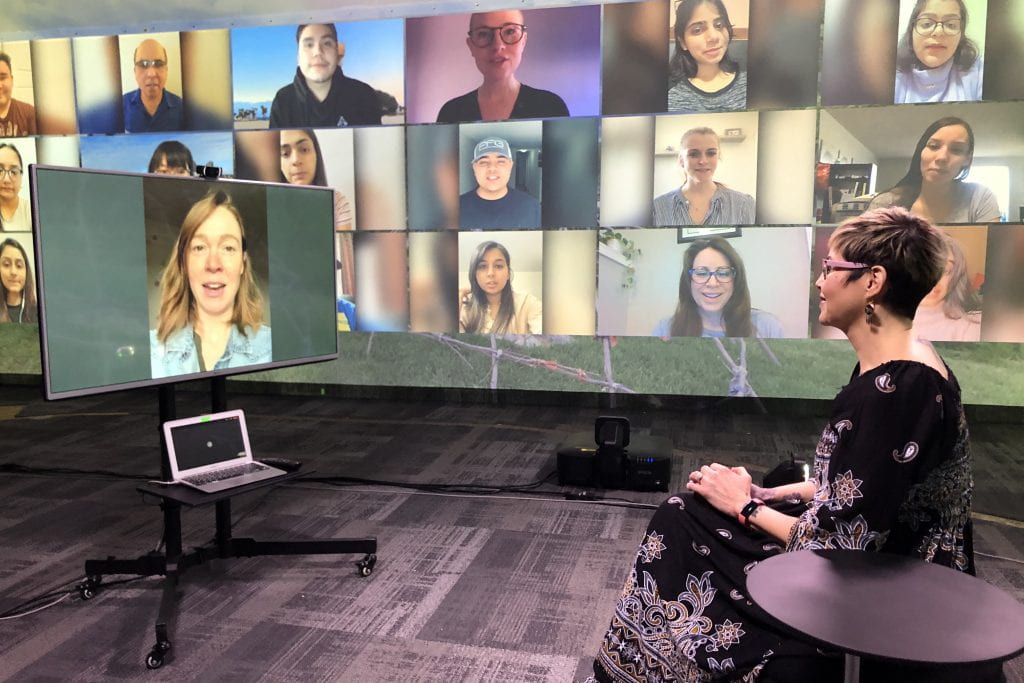RRC Polytech announces new name for Exchange District Campus expansion
Today, Red River College Polytechnic announced the new Anishinaabemowin (Ojibwe) name of its recently opened building at the Exchange District Campus.
Formerly known as the Innovation Centre project, the new building — now called Manitou a bi Bii daziigae, which translates to “Where Creator sits / Brings light” — officially opened its doors to the public.
As part of the festivities, the College’s Elders-in-Residence — Elder Paul Guimond, Okonace (Little Eagle Bone) from Sagkeeng First Nation, and Miss Una Swan, Black Eagle Woman, from Fisher River Cree Nation — held a pipe ceremony in the agora of the new 100,000 square-foot space to introduce the name to the community, bring spirit and life to the name, and honour traditional sacred ceremony.
“We’re in a time of beautiful change to bring that light, that hope, and I think if we can bring the spirit of that name into that building, maybe we’ll be able to take that step ahead and walk with it,” said Guimond. “The new building is so unique. It’s powered by nature. Much like how we live, powered by nature and the sun. The sun is such a beautiful spirit: it brings warmth, it brings growth, it brings light, it brings hope. Without that sun there is no life. And if you look at the new building, it’s all powered by the sun.
“It’s just a matter of now respecting it and giving it the name that it needs to guide that spirit. It’s a building, but it has spirit. It’s going to bring that positive spirit in the minds and the realm of all people. I think there’s an opportunity to give a name to something that’s going to give us life, that’s going to give us hope. And I hope that that name will serve its purpose, and I’m glad that opportunity is there.” Read More →




 Each year, the Red River College Students’ Association presents a Teacher Award of Excellence in recognition of an instructor’s outstanding teaching practices and dedication to students.
Each year, the Red River College Students’ Association presents a Teacher Award of Excellence in recognition of an instructor’s outstanding teaching practices and dedication to students.


